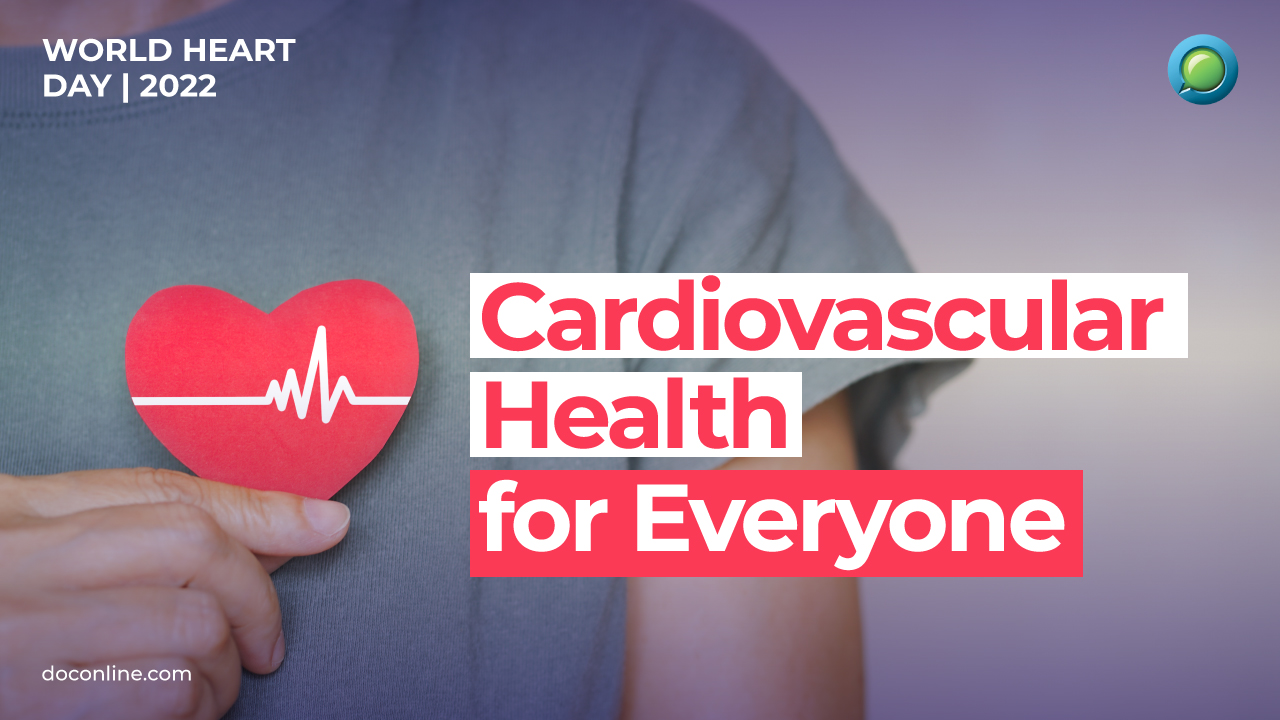Cardiovascular Health for all – Need of the hour
Cardiovascular disease (CVD) encompasses the conditions that affect the heart and blood vessels. Most common acute problems that may result from CVDs are heart attack and brain stroke. With 18.6 million deaths every year worldwide, cardiovascular disease is stamped as the number one killer accounting for 33% of all global deaths. 1 in 4 deaths in India is due to heart attack and brain stroke.
What is Cardiovascular Disease (CVD)?
CVD includes conditions that affect heart muscles, valves, and issues with the heart’s outer lining. It also covers conditions that may narrow/block blood vessels which can lead to a heart attack, angina, and brain stroke. [Table 1]
Table 1: Types of conditions in CVD| Heart | Blood vessel |
|---|---|
|
|
Who is at higher risk of developing CVDs?
Older people with a family history of CVD and those with unhealthy lifestyles are at a higher risk of developing CVD. This risk increases if a person possesses 2 or more risk factors such as:
- Smoking/Tobacco use
- Stress
- Excessive alcohol consumption
- High blood pressure
- High cholesterol
- Physical inactivity/Sedentary lifestyle/Obesity
- Diabetes
- Unhealthy diet [high salt, sugar, or fat]
- Air pollution: Long-term exposure to particulate matter can speed up atherosclerosis which may increase the risk of hypertension and heart diseases
The build-up of plaques inside blood vessels that causes the narrowing of vessels supplying the heart or brain is the most common cause of CVD. Genetic issues, scarring of the heart muscle, or medications may cause arrhythmias.
What are the symptoms of cardiovascular heart disease?
The symptoms depend on the condition and may vary from person to person
- Chest pain
- Weakness/numbness of legs or arms
- Difficulty breathing
- Irregular heartbeat/palpitations
- Light headedness, feeling dizzy
- Excessive tiredness
- Swollen limbs
Management of CVD
Diagnosis is made by history, clinical examination, and certain tests such as blood work (to know the status of sugar, cholesterol, etc), ECG (electrical activity of the heart), echocardiogram, cardiac CT/MRI, and/or cardiac catheterization.
The treatment depends on symptoms and the type of heart disease which may include medications, surgical intervention, cardiac rehabilitation along with lifestyle changes.
The most dreaded cardiovascular diseases can be effectively managed by a few simple and persistent approaches such as taking medications on time, maintaining optimal B.P, keeping a check on cholesterol, and sugar levels, along with inculcating good habits such as exercise, eating healthy, quitting smoking and avoiding harmful use of alcohol.
Tips to reduce the risk of developing CVD
- Eat a heart-healthy diet: Have a low-fat, fiber-rich nutritious diet including fresh fruits, vegetables, whole grains, low-fat dairy, fish, and nuts. Limit salt intake (to less than 5g daily), processed food, sugary food, saturated fat [butter, red meat] and trans-fat as the latter increases the bad cholesterol.
- Sleep well: A good night's sleep of 7- 8 hrs is essential for a healthy heart. It has been found that inadequate sleep [< 6hrs] is associated with a higher risk for cardiovascular diseases.If you have trouble staying asleep, it could be due to sleep apnea. Talk to a doctor for evaluation, as sleep apnea is linked with heart disease and arrhythmias.
- Say “NO” to smoking: Smoking constricts the blood vessels and causes coronary heart diseases. So, quit smoking and avoid secondhand smoke to prevent the risk of heart disease.
- Limit your alcohol consumption.
- Get active: Regular exercises such as brisk walking, cycling, and swimming along with a good diet maintain a healthy body weight, elevate mood, and keep a check on your cholesterol and blood pressure levels.
- Beat the stress: Practice yoga, pranayama & meditation every day, learn new things, engage in various activities/hobbies, and laugh out loud to keep stress at bay.
- Keep moving: Avoid sitting for long periods since it is associated with the risk of increased cardiovascular events. Take a break and move around.
- Maintain good dental hygiene: Brush your teeth regularly to prevent gum disease as the bacteria that cause gum disease can also increase the risk of heart disease.
- Get regular heart health check: If you are ≥ 45 yrs or have a family history of heart disease, you need to monitor your blood pressure at home at least once a month, and get yourself tested regularly at a doctor’s clinic.
Take control of your heart health before it's too late as most cardiovascular diseases are largely preventable if certain behavioral risk factors are addressed well in time.













